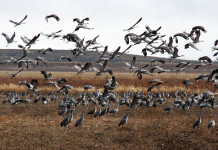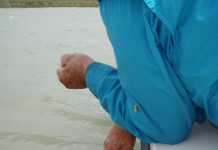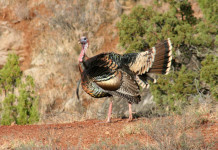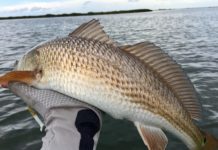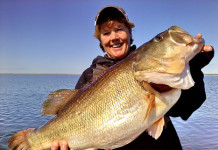The red snapper debate has Texas and other Gulf states seeing red over what they view as federal intrusion on a recreational fishery that adds millions of dollars to local economies.
And the argument has gotten legal.
The Texas Parks and Wildlife Department and the Louisiana Department of Wildlife and Fisheries and its commission filed a lawsuit last week, challenging an emergency regulation enacted by the National Marine Fisheries Service. That move would allow the agency’s regional administrator to reduce the recreational red snapper season in federal waters off the coast.
The lawsuit comes after Gov. Rick Perry and the governors of Louisiana, Florida and Mississippi sent a letter to Congress, urging that snapper regulation be left up to the discretion of states, citing scientific research supporting the stance. That letter pointed out that federal management of Gulf red snapper is evidence of a system that is “irretrievably broken” and called for passage of legislation that would replace it with a coordinated Gulf states partnership for snapper management.
In February, over strong objections from state agency representatives, the Gulf of Mexico Fishery Management Council voted to implement an emergency rule that would shorten the recreational red snapper fishing seaason in federal waters off the Texas coast to as few as 12 days and to nine days off the Louisiana coast. In 2012 the snapper season in federal waters throughout the Gulf was 46 days. Snapper fishing is allowed all year in Texas waters and 88 days in Louisiana waters.
On April 18, the Gulf council voted to overturn the emergency rule. Texas and Louisiana representatives said the lawsuit was an added measure of enforceability should NMFS not act on the latest council motion prior to the start of the federal recreational season for red snapper in the Gulf of Mexico that begins June 1. The federal court has been asked to expedite its consideration of the case so that a decision is reached before June 1.
The emergency rule would empower the NMFS southeast regional administrator to reduce the red snapper season in federal waters off Texas and Louisiana. In Texas, federal waters begin nine nautical miles from the coast and extend 200 nautical miles. The rule affects Florida as well, since all three states have refused to shorten snapper seasons in state waters to mirror seasons set by NMFS for federal waters.
TPWD estimates that an originally projected 27-day season would generate at least $28 million from recreational anglers in Texas, while a 12-day season would cut that figure by at least $16 million.
For Louisiana, reducing a 45-day season to a nine-day season could result in an estimated decline in economic value of approximately $8 million to recreational anglers, officials said.
Fisheries managers from Texas and Louisiana have presented a regional management plan that would allow individual states to manage fish stocks off their coasts. Though the plan was focused on flexibility and extensive data gathering and was supported by the Coastal Conservation Association, among other groups, and anglers across the Gulf, it was rejected by the Gulf Council.
The length of the federal recreational season in the Gulf is determined by the amount of the quota, the average weight of fish landed and estimated catch rates over time. NOAA Fisheries is responsible for ensuring the entire recreational harvest, including harvest in state waters, does not exceed the recreational quota. Therefore, if states establish a longer season or a larger bag limit for state waters than the federal regulations allow in federal waters, the federal season must be adjusted to account for the additional harvest expected in state waters.
More than 95 percent of the red snapper landed in Texas come from federal waters, according to TPWD figures. Most of that catch – about 80 percent – comes from head boats, also known as “party boats,” which take out numerous paying clients offshore. These boats account for roughly 200,000 angler fishing trips annually, according to TPWD figures.
The escalating battle is likely to have an answer before the busy summer tourist season begins across Gulf states, but the immediate response is sure to have far-reaching implications in future fisheries management.
And it’s all about a species with a two-fish daily bag limit.
Visit TPWD’s forum to offer comment on the issue. About 97 percent of public comments have been against the federal move, according to TPWD figures.




